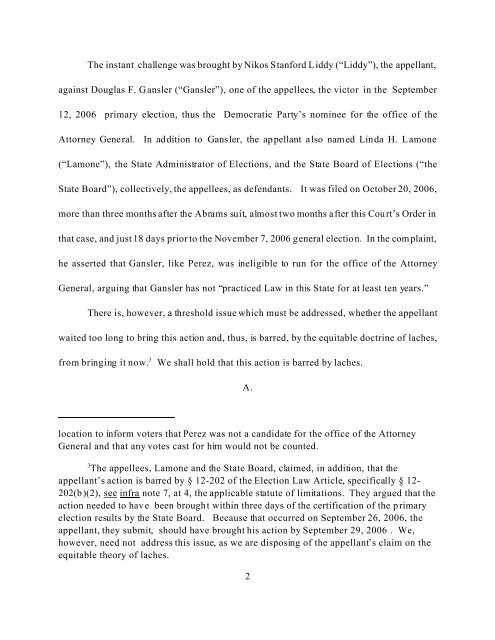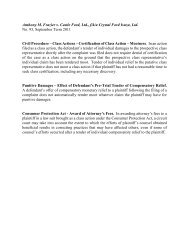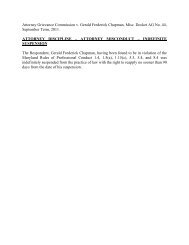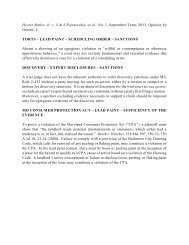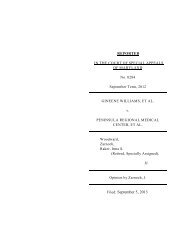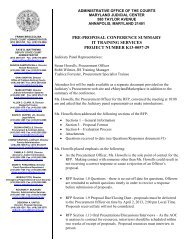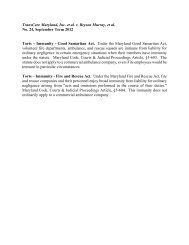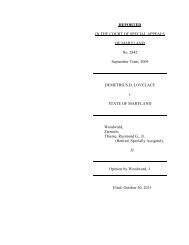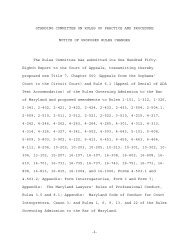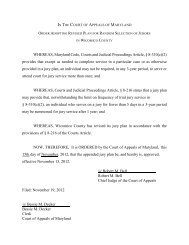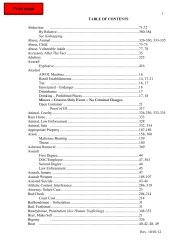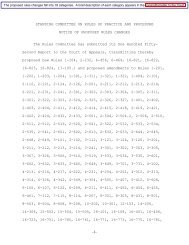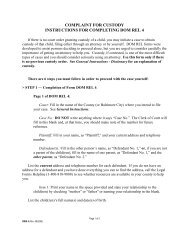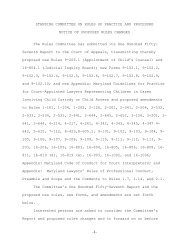Liddy v. Lamone - Maryland state court system
Liddy v. Lamone - Maryland state court system
Liddy v. Lamone - Maryland state court system
Create successful ePaper yourself
Turn your PDF publications into a flip-book with our unique Google optimized e-Paper software.
The instant challenge was brought by Nikos Stanford <strong>Liddy</strong> (“<strong>Liddy</strong>”), the appellant,<br />
against Douglas F. Gansler (“Gansler”), one of the appellees, the victor in the September<br />
12, 2006 primary election, thus the Democratic Party’s nominee for the office of the<br />
Attorney General. In addition to Gansler, the appellant also named Linda H. <strong>Lamone</strong><br />
(“<strong>Lamone</strong>”), the State Administrator of Elections, and the State Board of Elections (“the<br />
State Board”), collectively, the appellees, as defendants. It was filed on October 20, 2006,<br />
more than three months after the Abrams suit, almost two months after this Court’s Order in<br />
that case, and just 18 days prior to the November 7, 2006 general election. In the complaint,<br />
he asserted that Gansler, like Perez, was ineligible to run for the office of the Attorney<br />
General, arguing that Gansler has not “practiced Law in this State for at least ten years.”<br />
There is, however, a threshold issue which must be addressed, whether the appellant<br />
waited too long to bring this action and, thus, is barred, by the equitable doctrine of laches,<br />
from bringing it now. 3 We shall hold that this action is barred by laches.<br />
location to inform voters that Perez was not a candidate for the office of the Attorney<br />
General and that any votes cast for him would not be counted.<br />
A.<br />
3 The appellees, <strong>Lamone</strong> and the State Board, claimed, in addition, that the<br />
appellant’s action is barred by § 12-202 of the Election Law Article, specifically § 12-<br />
202(b)(2), see infra note 7, at 4, the applicable statute of limitations. They argued that the<br />
action needed to have been brought within three days of the certification of the primary<br />
election results by the State Board. Because that occurred on September 26, 2006, the<br />
appellant, they submit, should have brought his action by September 29, 2006 . We,<br />
however, need not address this issue, as we are disposing of the appellant’s claim on the<br />
equitable theory of laches.<br />
2


